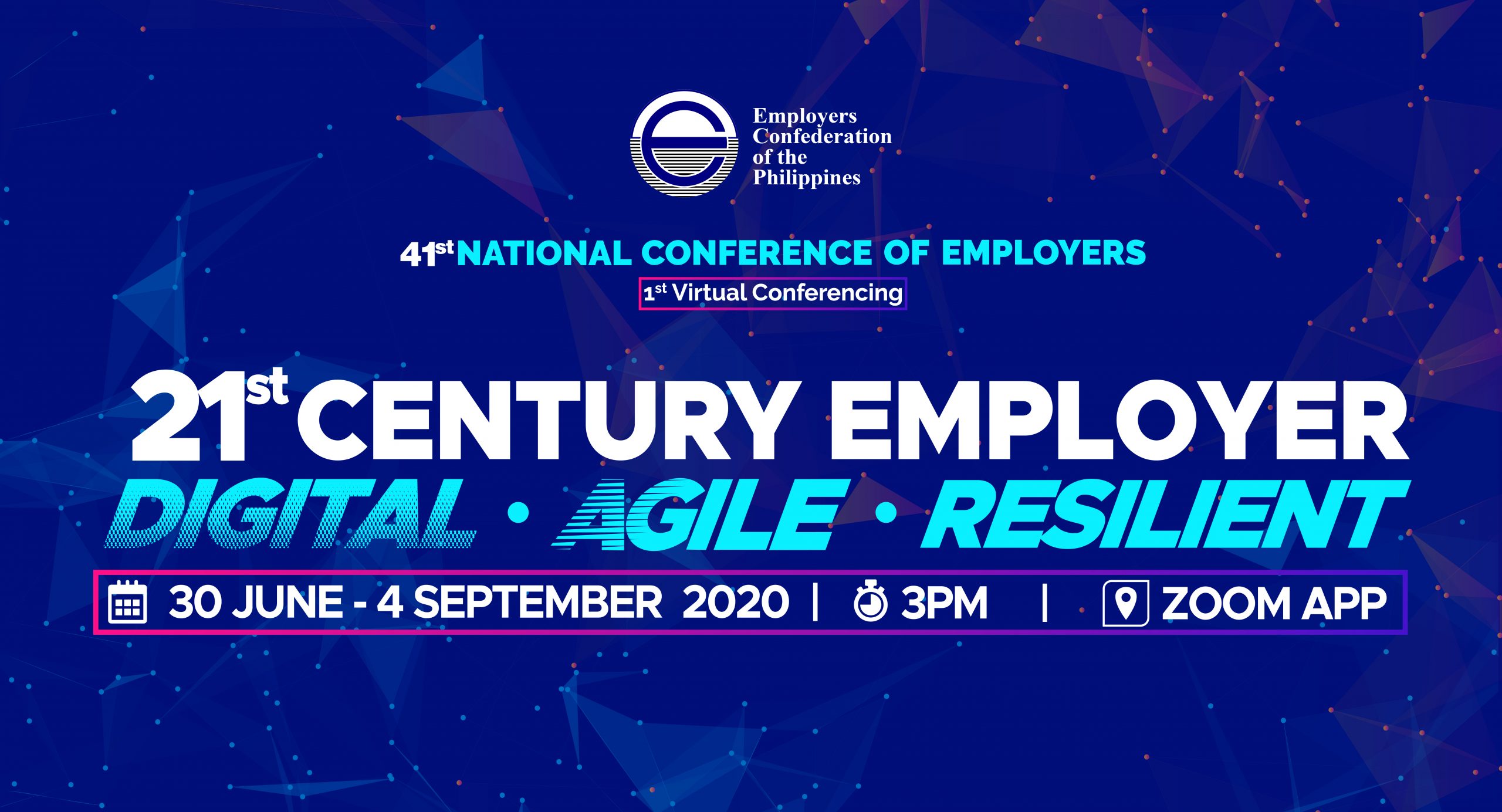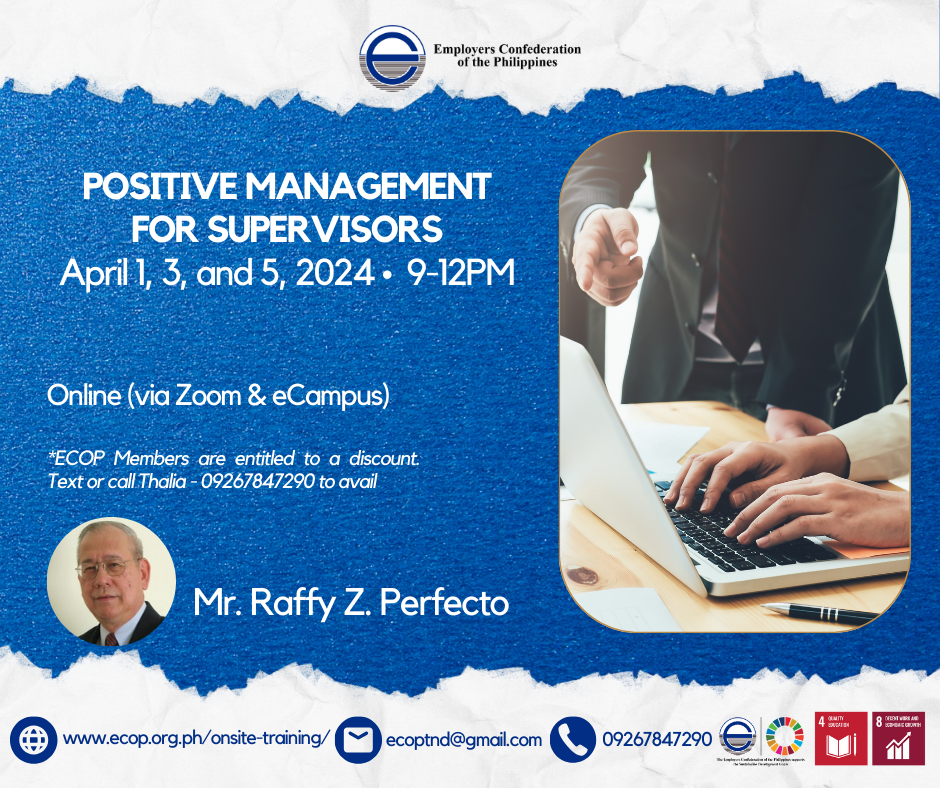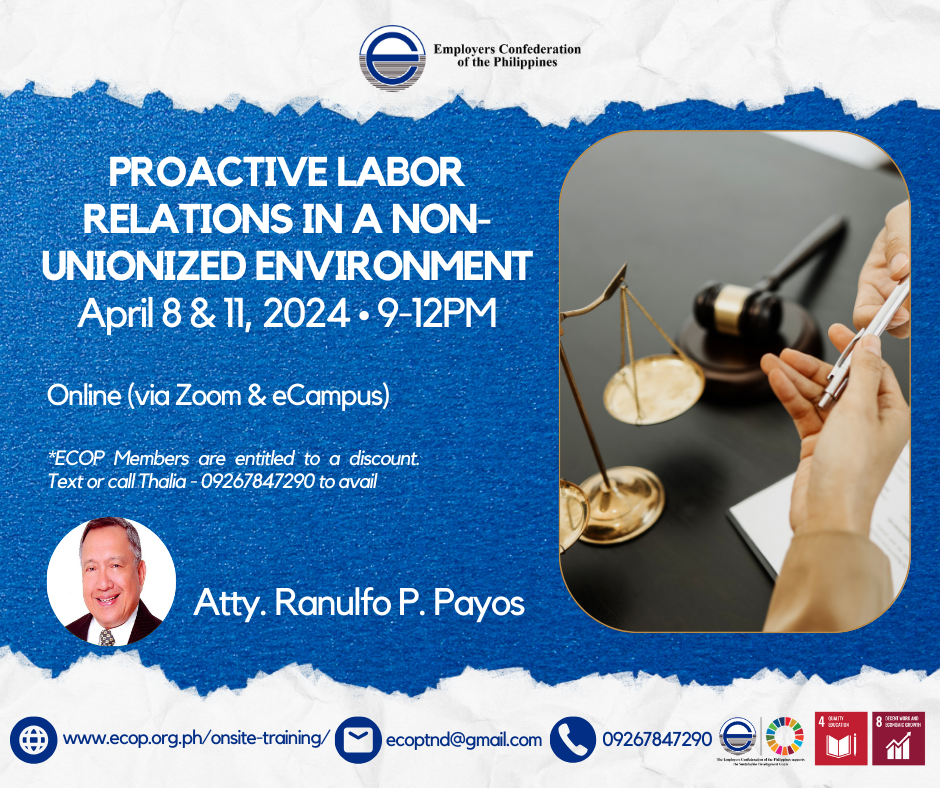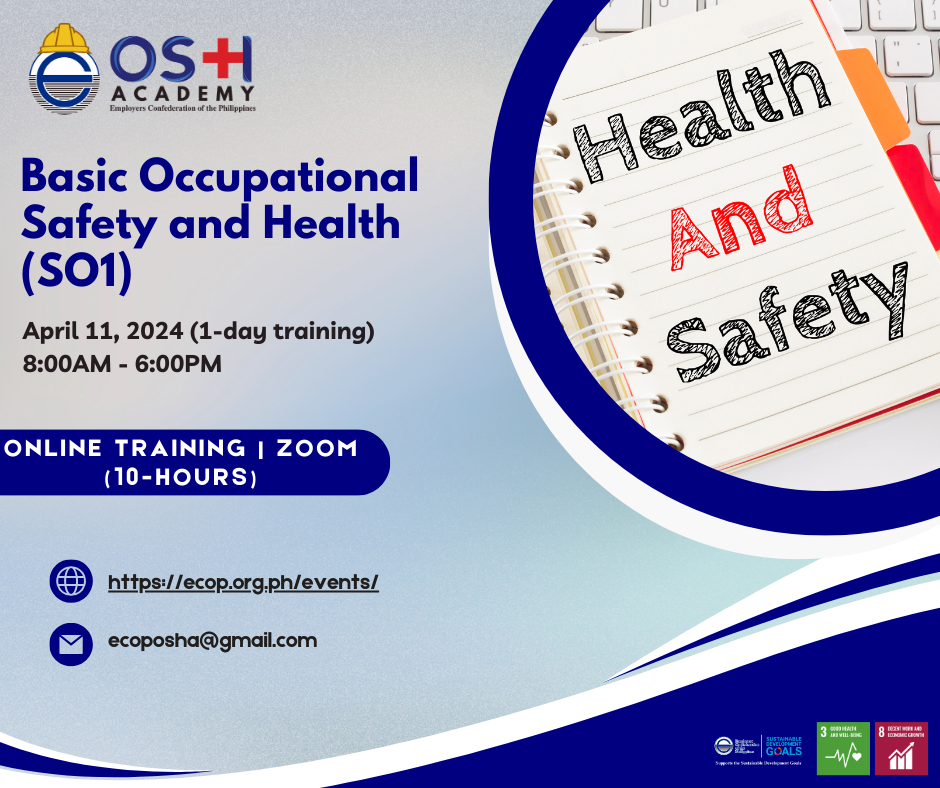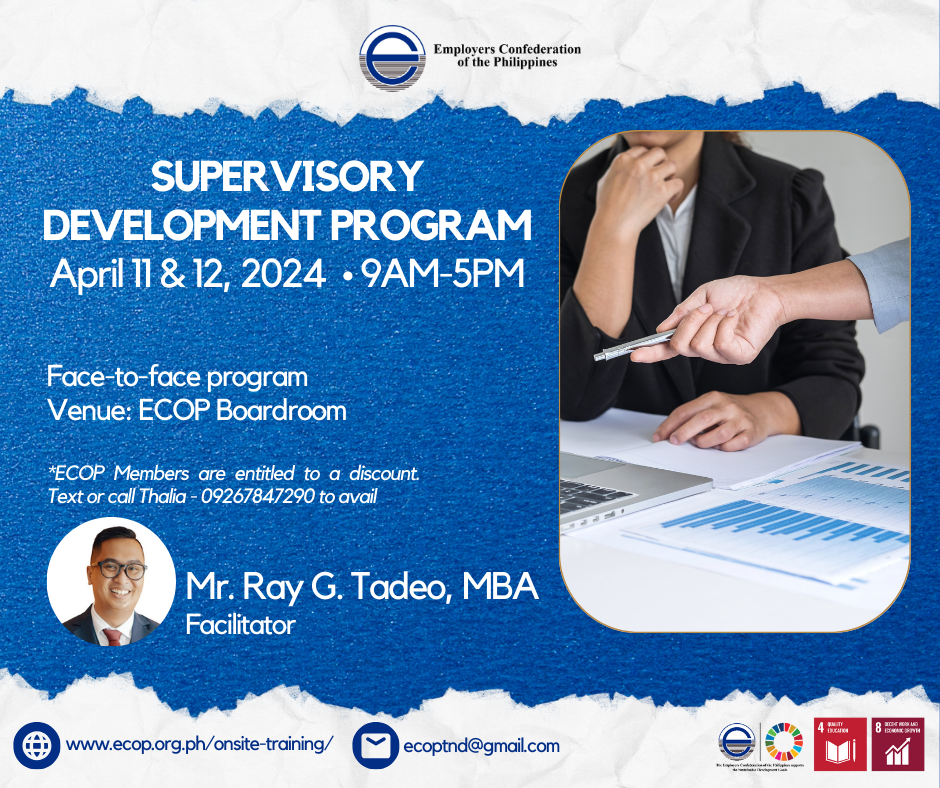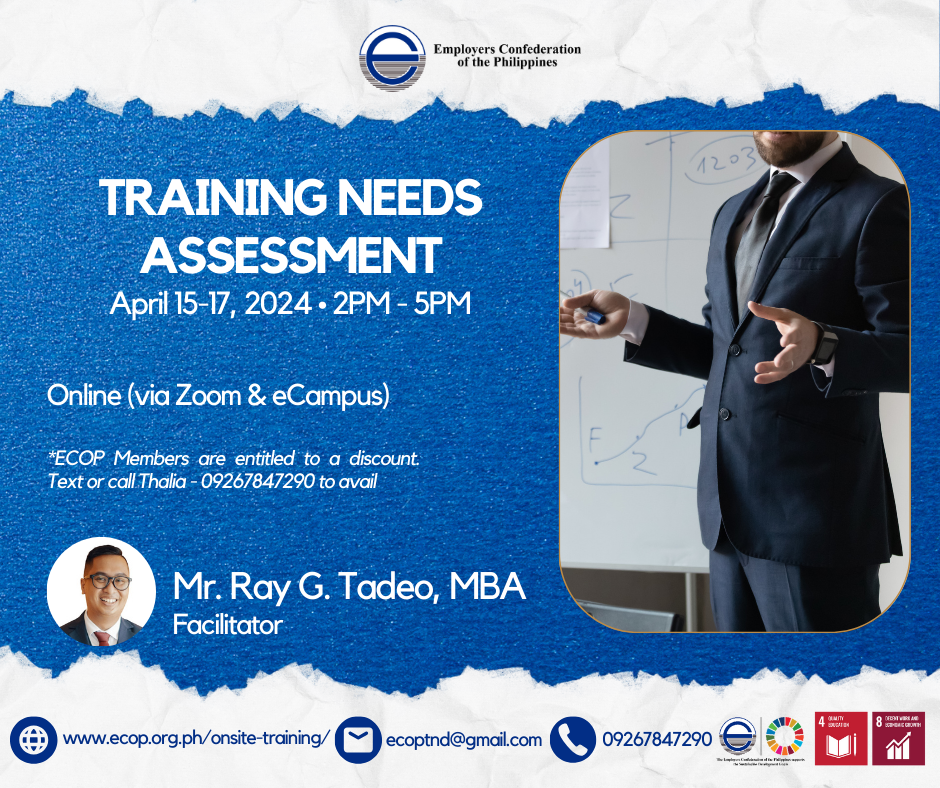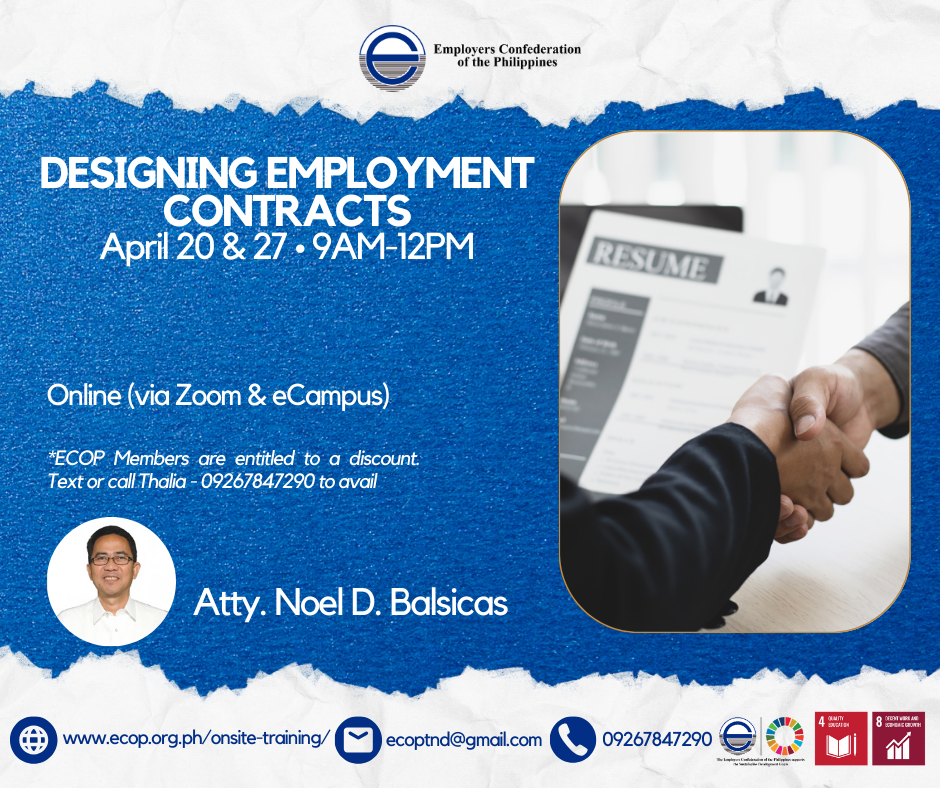Like the tech gurus predicted, the world suddenly became digital, virtual, and connected online. For its 41st National Conference of Employers (NCE 41), ECOP will be going digital. The 41st Virtual NCE will be delivered online and made available from August 3 to 7, 2020, via Zoom.
This year, ECOP will focus on an important change driver, the Employer. With the theme, “The 21st Century Employer: Digital, Agile, and Resilient”, the conference shall provide an understanding of the key forces shaping the new economy, showcasing successful decision-makers from small and large businesses and their strategies to adapt to the changing world of work and business. Through this Conference, ECOP aims to develop concrete recommendations and commitment on how to initiate the workplace transformation in response to the 21st century megatrends now unfolding.
The 41st Virtual NCE will feature four main topics focusing on (1) the Digital Employer, (2) the Agile Employer, (3) the Resilient Employer, and (4) Policy Reforms to Restart the Economy.
In addition to the abovementioned Conference sessions, the 41st Virtual NCE will also deliver pre- and post-Conference webinar sessions that will revolve around the four main topics which are designed to complement the Conference-proper topics. These pre- and post-session will run through June to July 2020 and August to September 2020, respectively.
The 41st Virtual NCE will allow participants to learn from local and international resource speakers through presentations, forums, and panel discussions. Participants will also be able to engage with our resource speakers through a moderated Q&A.
The year 2020 brought changes to the world of work and businesses were forced to adapt and adjust policies, practices, and plans. ECOP’s 41st Virtual NCE shall help prepare and equip businesses with creative approaches to respond to challenges of the future of business and work. By helping to bridge the gaps, we can encourage a new generation of employers to contribute to the economy.
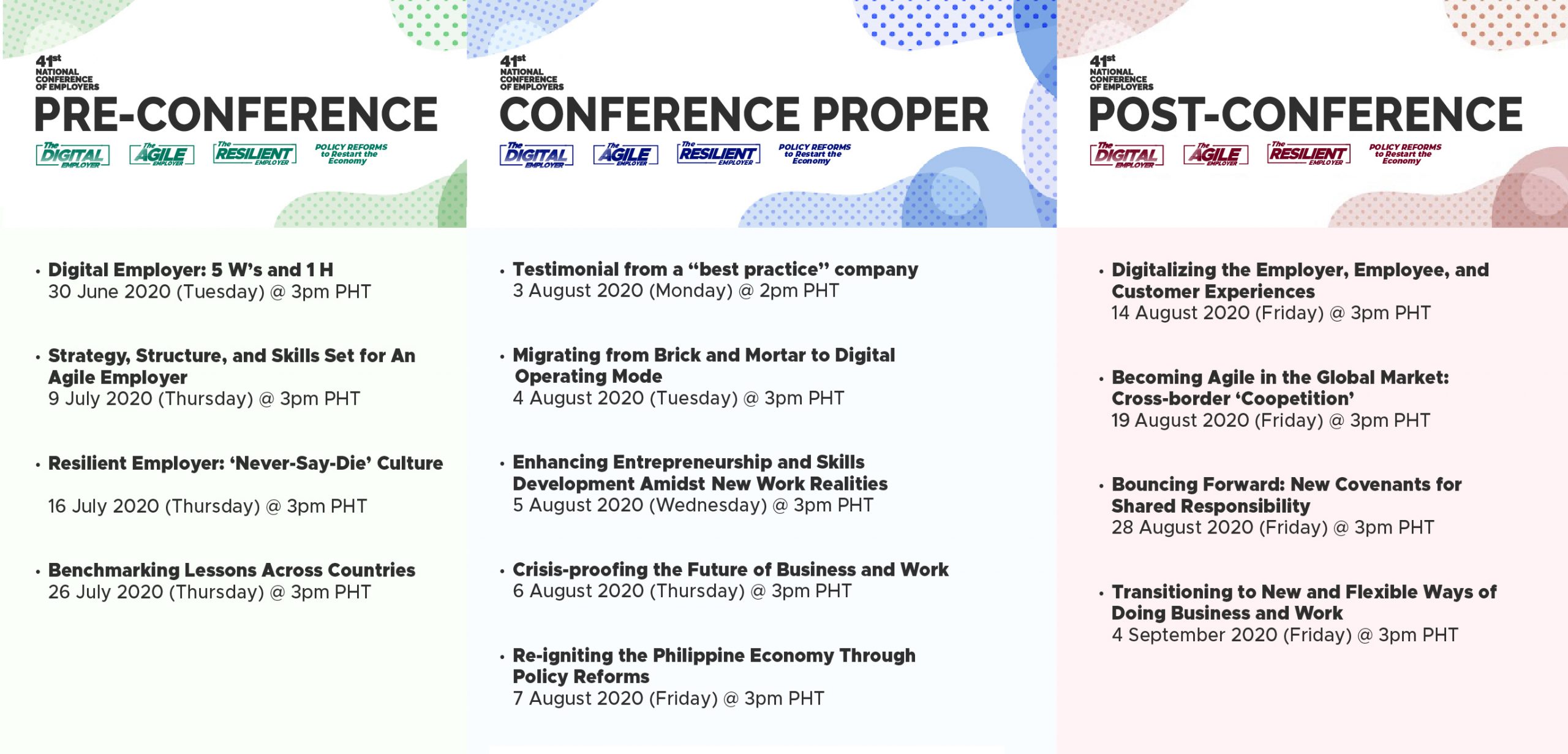

| Regular Rate | GROUP RATE (min. 3 PAX) | |||
| ECOP MEMBER | NON-MEMBER | ECOP MEMBER | NON-MEMBER | |
| ALL EVENTS | Php 3,990.00 | Php 4,990.00 | Php 3,590.00 | Php 4,590.00 |
| CONFERENCE ONLY | Php 2,990.00 | Php 3,990.00 | Php 2,590.00 | Php 3,590.00 |
| Conference Proper (per episode) | Php 890.00 | Php 990.00 | Php 690.00 | Php 790.00 |
| Pre-Conference Package | Php 2,760.00 | Php 3,160.00 | Php 1,960.00 | Php 2,360.00 |
| Post-Conference Package | Php 2,760.00 | Php 3,160.00 | Php 1,960.00 | Php 2,360.00 |
| Pre/Post Conference (per episode) | Php 690.00 | Php 790.00 | Php 490.00 | Php 590.00 |
Visit this link to register: http://tiny.cc/NCE41
You may get in touch with the following contact persons for inquiries:
Ms. Mina Cacapit – 09277116177 | [email protected]
Ms. Zeni Bonghanoy – 09178059471 | [email protected]
DIGITAL | AGILE | RESILIENT
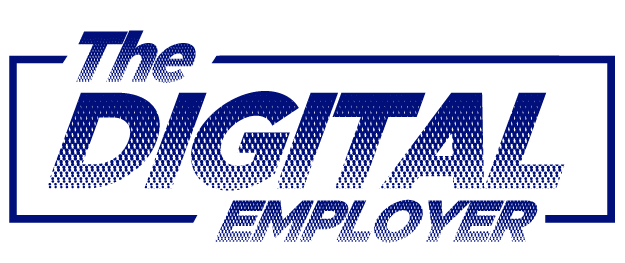 The Digital Employer
The Digital Employer
The accelerated digitization and digitalization of many aspects of human life, together with the onset and acceleration of the FIRe, made it necessary for businesses to undergo digital migration of business operations. Digital transformation also enables new business models such as online selling, which led to new products, service offerings, and virtual customer experience. Digital transformation puts pressure on micro, small, and medium enterprises (MSMEs) to revisit their current strategy and explore new business opportunities, as life cycles of products, services, and business models continue to shorten. The impact of digital transformation varies but usually leads to increased revenues, decreased operating costs, improved customer satisfaction, optimized operations, and enhanced employee engagement. Creative digital solutions give businesses a competitive edge. Those who embrace technological advancements will thrive; those who don’t will fall in the digital revolution.
In the new normal, digital transformation ceases to be an option – it is imperative for business survival and success. The 21st century employer must be, first and foremost, digital. Customer behavior honed by the current pandemic now expect entrepreneurs to integrate e-commerce into their business model, engage in digital marketing, utilize social media platforms, and use creative digital solutions to reinvent customer experience. In the session entitled “Migrating from Brick and Mortar to Digital Operating Modes”, successful entrepreneurs from small and large companies alike will discuss strategies to leverage digital tools and innovations in building new systems from the ground up and improving current digital tools.

The Agile Employer
In the old economy, the big swallowed the small. In the new economy, the fast will eat the slow. Over the past decades, globalization became a powerful change driver, particularly through the influence of cross-border cooperation and international competition. Rapid advances in information and communication technology further fanned globalization, as technology made data sharing and connectivity easier. These developments made enterprises more decentralized in structure and more agile as decisions are devolved to the units or persons closest to the customer. The coronavirus pandemic even made the equation more complex and forced businesses to rethink traditional ways of doing business in order to adapt to the rapidly changing environment. Employers must embrace technology and digital solutions to support flexible work arrangements and provide digital channels to customers, vendors, and employees. In addition, the crisis posed not only health risks to millions of people across countries, but also made imperative creative solutions in addressing needs for lifelong learning, TVET, apprenticeships, and skills development.
To be agile in the new normal, employers must effectively match workers’ skills to new roles, which will replace task-specific jobs. In the session entitled “Enhancing Entrepreneurship and Skills Development amidst New Work Realities”, speakers will discuss how employers can reskill and upskill their workforce in order to deliver unmatched customer experience in the most agile manner. Employers will be more agile if they have viable labor market information, can anticipate changes in the way business is conducted globally, and quickly leverage the impact of technological advances. To help ensure agility, enterprise-based education and training to address gaps in emerging hard and soft skills will be the most viable training strategy.
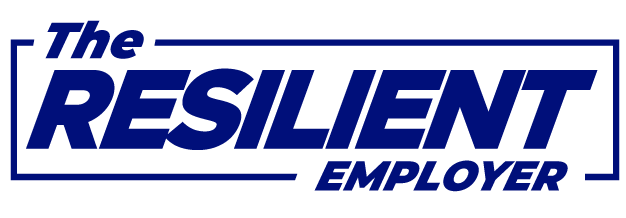
The Resilient Employer
The COVID-19 pandemic has shown how businesses can be effective catalysts for social and economic progress as they have the capital, platform, technology, and human resources needed to deliver scalable innovative and sustainable solutions. As the world continues to suffer social and economic disruptions during the pandemic, the private sector took the initiative to keep businesses afloat and save millions of jobs, while simultaneously helping the community in the fight against the pandemic. Despite the private sector’s efforts to keep the economy afloat, close to three million jobs were lost in three months from the onset of the pandemic, increasing the unemployed Filipinos by seven million as of April 2020. While the business sentiment is gloomy until a vaccine or cure is developed for the pandemic, employers continue to find ways to bounce back.
Resilient organizations have a few things in common. Early on, they anticipate changes that will impact their business, accept the new work realities and adjust their operating modes accordingly, develop new ways of doing things, empower their workforce by developing new skills required by the market – including initiative, adaptability, sense of ownership, and shared responsibility, and instilling a ‘never-say-die’ culture.
Resiliency in the face of the current crisis requires a deliberate effort to shift towards an inclusive and sustainable approach in doing business. According to the Business+ publication of the United Nations Development Programme (UNDP), there is a low level of awareness of the term “inclusive business” and what it means, as well as how the Inclusive Business model is applied to different business sectors and industries. The third session of the Conference will be a CEO Forum entitled “Crisis-proofing the Future of Business and Work”. This panel discussion featuring business leaders shall showcase best practices and private sector initiatives to ensure business resiliency and continuity, and how to contribute to achievement of the Sustainable Development Goals (SDG), especially in a post-lockdown and post-pandemic business environment.
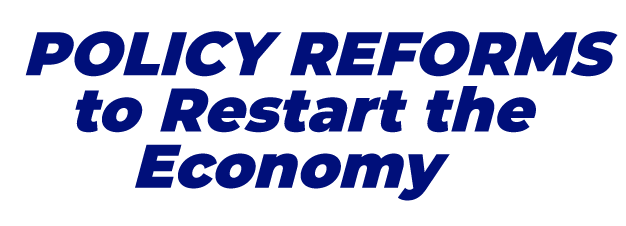
Policy Reforms to Restart the Economy
After discussing the megatrends that impact the future of work and the paragon of a 21st century employer, the Conference will localize the discussion and develop policy directions and reforms that can help the government implement strategies to restart the Philippine economy. To enhance employers’ collective digitalization, agility, and resiliency, a national action on 1) improving Internet connectivity and massive digitization will be needed; 2) developing a globally competitive Filipino workforce that is trained to react quickly to changing market conditions; and 3) a stimulus package, including investor-friendly fiscal, economic, monetary, and labor policy reforms, that can enhance business viability, resiliency, and sustainability. This national action shall be in the context of preserving jobs and restarting the Philippine economy during and post-COVID-19.
The last session on “Reigniting the Philippine Economy through Policy Reforms” shall dwell on finding creative solutions to facilitate the shift to a more digitized and digitalized economy. Sharing of practices by experienced industry champions will provide a wider context on how employers can support their employees during the transition to the new normal. Not only does this assure the workforce of their employment, but it is also essential in ensuring business continuity despite external disruptive factors.
BE A SPONSOR
in an event that runs for 3 months

For inquiries, please contact:
Ms. Angela Usero – [email protected] | 09176772415
Ms. Kristia Banda – [email protected] | 09178059471

